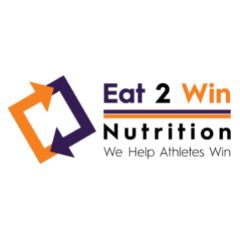Caffeine and Athletic Performance for SN 6.0
Sports Nutrition (SN) Symposium 6.0
Friday, February 3 @ 1:30 pm CT
This presentation will explore the current body of evidence for caffeine as it relates to athletic performance with a particular emphasis on research findings in exercise, efficacious dosing, mechanisms of action, current consensus statements from recent review papers, and important questions that have yet to be answered.
Q&A for Session #10
- For endurance events, is there a mode of delivery that is best tolerated by athletes to consume 3-6mg/kg? For example, 1 cup of coffee an hour before a marathon might not be well tolerated.
- One author talks about the capsule and knowing the amount of caffeine content. Coffee can have a large range of caffeine content. Some products have variety of caffeine content and sources. Slow release vs anhydrous caffeine content in sources.
- How much weight should we give to studies that show that engineered caffeine works better? Further, what about a combination of caffeine and Tyrosine, Alpha GPC, Huperazine A, basically other notropics?
- I can't speak to all the other combinations. One of the challenges is I don't know if it's been tested in clinical study and if it has I haven't speak to the specifics. As to the weight to the studies, alot of studies have used the anhydous form and seems to be more common. There is a lot of emergence of new forms.
- For larger athletes, would you recommend an upper limit for caffeine intake? For example, a 250lb athlete would have a range of 350-680 mg.
- Thats a good question. There is some inter individual differences in the person. A lower dose may be equally as effective. From a safety and practical standpoint, the lower doses, as low as 1.5 mg/kg could be effective. There is more talk about the lower amounts are comparable.
- Can you provide some insight regarding what age you would start recommending caffeine to help enhance sport performance? I work with young athletes (16 years +) who are keen on trying caffeine and/or using pre-workout supplements that have caffeine in it. Thanks!
- I didn't come across a lot of information on age. There is one study - referencing a mouse, the age and muscle. There were some papers with younger athletes but he did not look at the specifics of age on individual studies. Tavis avoids preworkouts on young athletes.
- There are so many energy drinks and pre-workouts on the market. A couple that have become popular are Alani Nu and G.O.A.T. Thoughts on using these for adult athletes.
- He is not familiar with this company or this formulation. He is familiar with individual components in studies.



Facebook comments